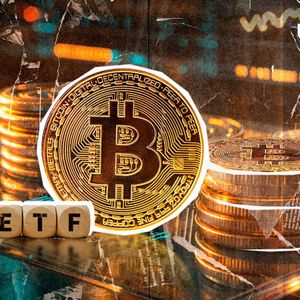Securitize says native tokenization is the only true on-chain securities model
3 min read
Securitize CEO Carlos Domingo has declared that native tokenization is the only authentic way to represent securities on a blockchain. Speaking to the media, Domingo said that anything less than native tokenization risks confusing investors and weakening the promise of blockchain technology. There’s no true on-chain model for securities today—most are confined to walled gardens, Domingo argued in a recent interview . In contrast, native tokenization builds, issues, and records securities directly on the blockchain, with no intermediaries or replicas of traditional assets involved. Exodus, a crypto software company, is one such example, with its stock trading on the Securitize platform as tokens, for one thing. Investors have a blockchain-based token that is legally the share itself. This would remove counterparty risks, operational friction, and fragmentation, common when a record of value is stored off-chain and on-chain do not tally, Domingo continued. He also cited BlackRock’s Institutional Digital Liquidity Fund (BUIDL), a $2.8 billion money market fund, as an example of how native tokenization can be done at scale. Rather than using a traditional fund with centralized databases and third-party custodians, Securitize acts as the fund’s on-chain transfer agent, keeping the share register for all shares on its cap table on Ethereum. Regulators caution against synthetic token offerings Amid the scramble in tokenization, US regulators grow increasingly weary of how securities are being redesigned on-chain, especially when the technology ostentatiously obscures legal responsibilities. This week, SEC Commissioner Hester Peirce released a statement reminding the industry and retail investors that tokenized assets are still subject to securities laws. She cautioned that blockchain’s technological properties do not alchemically alter the legal nature of an asset. “As powerful as blockchain technology is, it does not have magical abilities to transform the nature of the underlying asset,” she wrote. “Tokenized securities are still securities.” Her remarks come at a time of mounting anxiety that forays by non-native token models, including those recently launched by Robinhood and Kraken, are misguided. Robinhood’s tokens debuted last month on Ethereum’s Arbitrum network and don’t correspond to direct ownership in stocks like OpenAI or Tesla. Instead, they provide “indirect exposure” to private companies via tokenized contracts. The tokens are not tradeable off the platform, are unavailable to US customers, and are subject to full KYC (Know Your Customer) checks. Kraken has gone a different direction. It’s xStocks, which are released through the Switzerland-headquartered company Backed, are permissionless and can be traded on decentralized exchanges. But US investors remain locked out again, underscoring the tough compliance maze. Lawyers such as Anthony Tu-Sekine, head of the blockchain group at law firm Seward & Kissel, pointed out that the legal boundaries remain clear despite technological developments. Tokenization is the future, but it’s time to learn some hard lessons Interest in the concept of tokenization has spiked this year as platforms race to bridge the world of traditional finance and that of crypto. However, previous experiments demonstrate that shortcuts or vague models can backfire. Crypto exchange giants such as Binance and one-time FTX have attempted to launch tokenized stock products in recent years. Such offerings were never realized due to regulatory implications. Abra, a digital asset platform, launched tokens based on contracts attached to US stocks and ETFs in 2019. However, after the SEC and the CFTC opened an inquiry , the company stopped the program and agreed to pay $150,000 in penalties to each organization for selling unregistered securities and breaking laws governing derivatives. Still, regulators have been more open lately. In May, the SEC held a roundtable on tokenization that gathered a range of voices from the crypto and financial sectors. SEC Commissioner Mark Uyeda said the session was part of an effort to understand the evolving market better. He noted that, in recent history, people seemed to have forgotten one of the most basic principles—that investors and issuers possess valuable perspectives and experiences. Your crypto news deserves attention – KEY Difference Wire puts you on 250+ top sites

Source: Cryptopolitan



